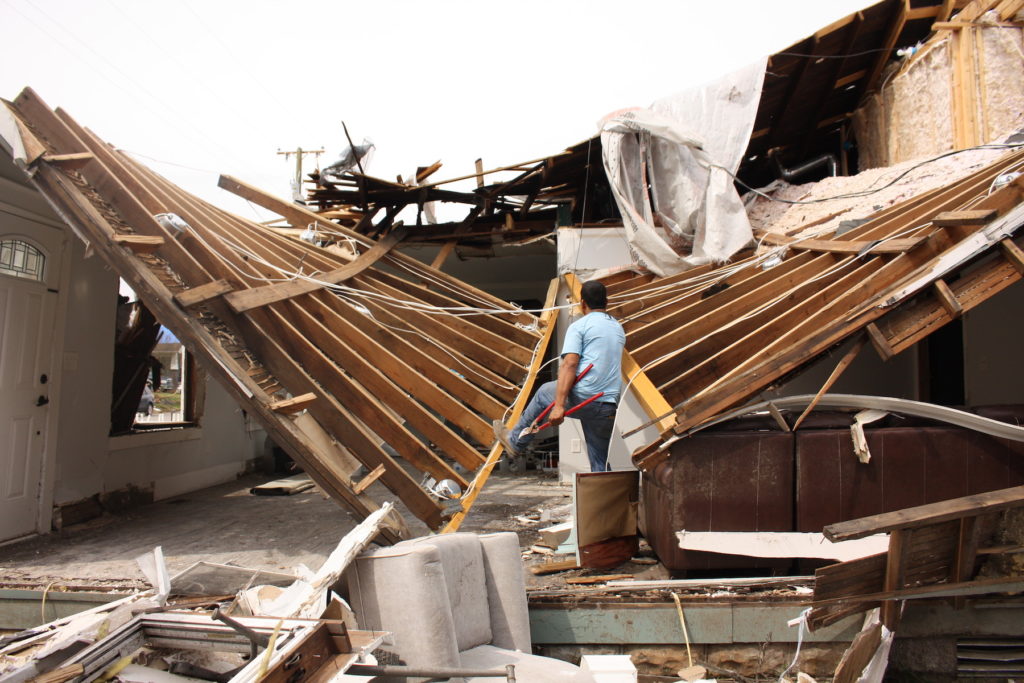
Tornadoes are a part of life for Middle Tennessee. While tornado season runs from March to June officially, there is also a secondary season in the fall. Additionally, the traditional “tornado alley” appears to be moving closer to the region.
While we can’t prevent tornadoes or other severe storms, being prepared can help us keep safe.
On the two-year anniversary of the March 2020 tornadoes,This Is Nashville host Khalil Ekulona spoke with a panel of experts about storm preparedness. The panel included NewsChannel 5 senior meteorologist Leland Statom, Nashville Severe Weather’s Andrew Leeper and Krissy Hurley of the National Weather Service of Nashville.
Here are some of their key takeaways on how to be prepared for the next major storm.
Where to go when you hear a tornado siren:
Seeking shelter is key when tornado warnings start rolling in. If you have access to a storm shelter or a basement, that’s the best place to be. The National Weather Service has additional resources on its website.
If you live in an apartment or a home without a basement, Leeper recommends seeking shelter in an interior room on the lowest level and away from windows. Try to put as many walls as possible between you and the outside.
If you’re away from home during a storm, find an open store or business where you can stay until the severe weather passes.
“We’re not asking you to do this for hours and hours and hours on end,” Leeper says, “but when that warning is issued just for a moment, finding a safe place that you can be in is very important.”
If you live in a mobile home or another structure that could be damaged by severe winds, Leeper recommends staying at a friend’s home until the storm passes.
Creating a storm preparedness kit:
The National Weather Service and the American Red Cross recommend assembling an emergency kit. Essential items include:
- water,
- non-perishable foods,
- blankets,
- first aid kit,
- multi-purpose tool,
- personal hygiene items,
- flashlights,
- battery-operated (or hand crank) radio,
- extra batteries,
- cell phone chargers.
People with young kids should also consider adding diapers, snacks, a change of clothes, and some small items to help keep young ones entertained.
Regardless of where you are when a storm strikes, Hurley recommends wearing a good pair of shoes to protect your feet from glass or possible debris. A helmet (bicycle, football, motorcycle, etc) is also good to have on hand.
“If there’s debris, a helmet is a great idea to put on,” Hurley says, “because one of the number one reason for fatalities is blunt force trauma to the head during tornadoes.”
How to handle storm anxiety:
Tornadoes can cause people to stress out or feel anxious at the thought of an impending storm. It’s a common feeling, and there are practical steps you can take to calm your fears.
Leeper recommends reaching out to friends and loved ones during a storm to feel less isolated.
Being prepared and having a safe place to go can help give you a sense of security before the storm hits.
For parents, letting kids know that you’re prepared can help them with their anxiety as well, according to Hurley. Finding a way to distract kids during the storm can also help them feel more comfortable.
Reaching out to a counselor or mental health professional can also ease storm anxiety.
Nashville Severe Weather and the NWS also offer additional resources and advice about storm anxiety.


